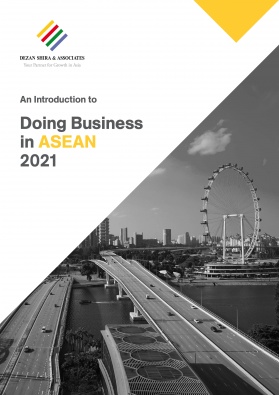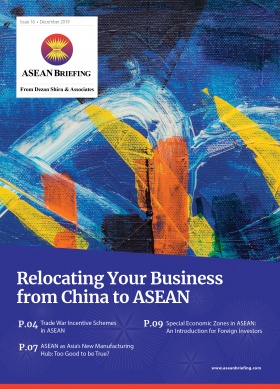Investment Infrastructure Projects in Indonesia Contributing to Improved Manufacturing Capability
Bandung City, West Java province
Op/Ed by Chris Devonshire-Ellis
Indonesia is fast becoming a viable destination for foreign investors, with both a large domestic middle-class consumer market of about 52 million – or about 20 percent of the total population. These 52 million accounts for 43 percent of Indonesia’s total household consumption.
China, with an eye on shifting labor-intensive manufacturing to other nearby countries in order to boost its own economy and move up the value chain, is well aware of this – and also wants the Indonesian domestic manufacturing market to sell to its own increasing affluent consumer society. To make sure that happens, at least from the China perspective, Chinese officials have been very active in bringing Indonesia on board as part of its Belt & Road Initiative.
Just last month, China’s Foreign Minister Wang Yi met with Indonesia’s Coordinator for Cooperation with China and Coordinating Minister Luhut Binsar Pandjaitan in North Sumatra. Several infrastructure developments were discussed, among them:
China-Indonesia cybersecurity
Prior to the meeting, the two countries witnessed the signing of the MoU on Developing Cybersecurity Capacity Building and Technical, focusing on developing capacity building of internet security and tech cooperation, marking the first-of-its-kind internet security agreement China has signed with a foreign country. According to the MoU between the National Cyber and Crypto Agency of Indonesia and the Cyberspace Administration of China is to form a platform to include an Internet governance system, data security, and the building of a secure, open, cooperative, responsible, and orderly cyberspace as well as ICT development. Huawei will work on advancing the 5G infrastructure.
This will help with developing Indonesia’s mobile communications market and digitize the consumer shopping experience. Although Indonesia is the world’s fourth-largest smartphone market after China, India, and the United States, the number of smartphone users in Indonesia is estimated to be about 82 million from a population of 271 million, meaning that roughly only a third of the total Indonesian market is currently covered. Of the 82 million smartphone users, most have two mobile accounts: in 2018, the subscriber count for telecommunications provider Telkomsel amounted to 163 million, indicating increasing affluence amongst Indonesian users. China’s assistance with developing Indonesian cyberspace will further accelerate consumer growth in this area.
Jakarta-Bandung high-speed rail
Both countries have also agreed to actively press forward with the 142 km, US$6 billion Jakarta-Bandung HSR, which connects Jakarta to the textile hub of Bandung. With a speed of 350 km per hour, the Chinese built HSR will reduce the journey time from more than three hours to around 40 minutes. Despite COVID, this project, 60 percent owned by an Indonesian JV partner, was 64 percent complete on December 23 and is on schedule to become operational during H2 2021.
Within Bandung city, the HSR will connect to existing new infrastructure builds, such as the local Light Rail Transit (LTR) and Indonesia’s own Automated People Mover (APM). Indonesia’s new second international airport is also located in Bandung and opened in June 2018.
Bandung itself is the capital of West Java province, and one of Indonesia’s most populous cities after Jakarta, with over 11 million inhabitants. In 2017 the city won a regional environmental sustainability award for having the cleanest air among major cities in ASEAN, and is a Smart City, leveraging technology to improve government services and social media, that alert residents to issues such as floods or traffic jams, and is Indonesia’s major tech center.
Electric vehicle production
In December 2020, Contemporary Amperex Technology (CATL), China’s largest producer of automobile battery packs, announced plans to build a US$5 billion plant in Indonesia to establish a beachhead in Indonesia as EVs gain popularity. Indonesia stated that it welcomes increased investment from China and is also looking forward to hosting China’s EV manufacturers. The lithium-ion battery assembly in Indonesia will be the second offshore production line for CATL, following its US$2 billion investment in Germany that will supply BMW when it begins production in 2021. The new Indonesian plant will start production in 2024 and can be expected to spearhead EV production in the country. This will fit in with Indonesia’s desire to follow green technologies and wean its emerging consumer class off petrol-driven vehicles and onto cleaner types of transport.
Summary
These varying developments were all approved in just one meeting – and although the Jakarta-Bandung HSR has experienced some previous difficulties – mainly over land acquisition issues – the overall picture shows the depth and pace of development that is occurring in Indonesia. The Jakarta-Bandung corridor will be a huge boom to manufacturing both for the domestic market and for export. Selling onto Indonesia’s domestic market can help finance export production.
There are logistical problems to solve – Indonesia has a shortage of skilled workers, and although education is now in place to start to solve this, it will take time to close. Salaries for skilled workers run from about US$400 a month.
However, Indonesia is a member of ASEAN and enjoys free trade with its partner countries in South-East Asia as well as with China, India, and the additional RCEP nations of Australia, Japan, New Zealand, and South Korea. Its potential for foreign-invested manufacturing is now coming very much to the fore.
We are grateful to Henry Tillman and his team at China Investment Research for their assistance with some of the content in this article.
About Us
ASEAN Briefing is produced by Dezan Shira & Associates. The firm assists foreign investors throughout Asia and maintains offices throughout ASEAN, including in Singapore, Hanoi, Ho Chi Minh City, and Da Nang in Vietnam in addition to Batam and Jakarta, in Indonesia. We also have partner firms in Malaysia, Bangladesh, the Philippines, and Thailand as well as our practices in China and India. Please contact us at asia@dezshira.com or visit our website at www.dezshira.com.
- Previous Article Challenges in Vietnam’s Manufacturing M&A
- Next Article Laos Planned Railways: Opening a National Rail Network in 2021











